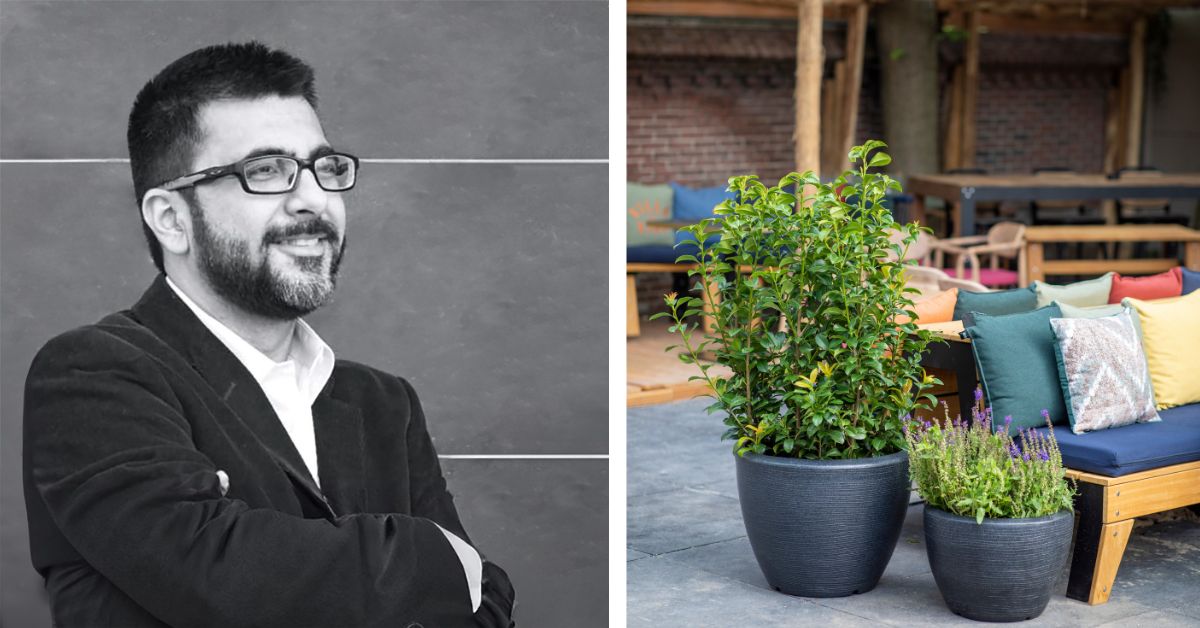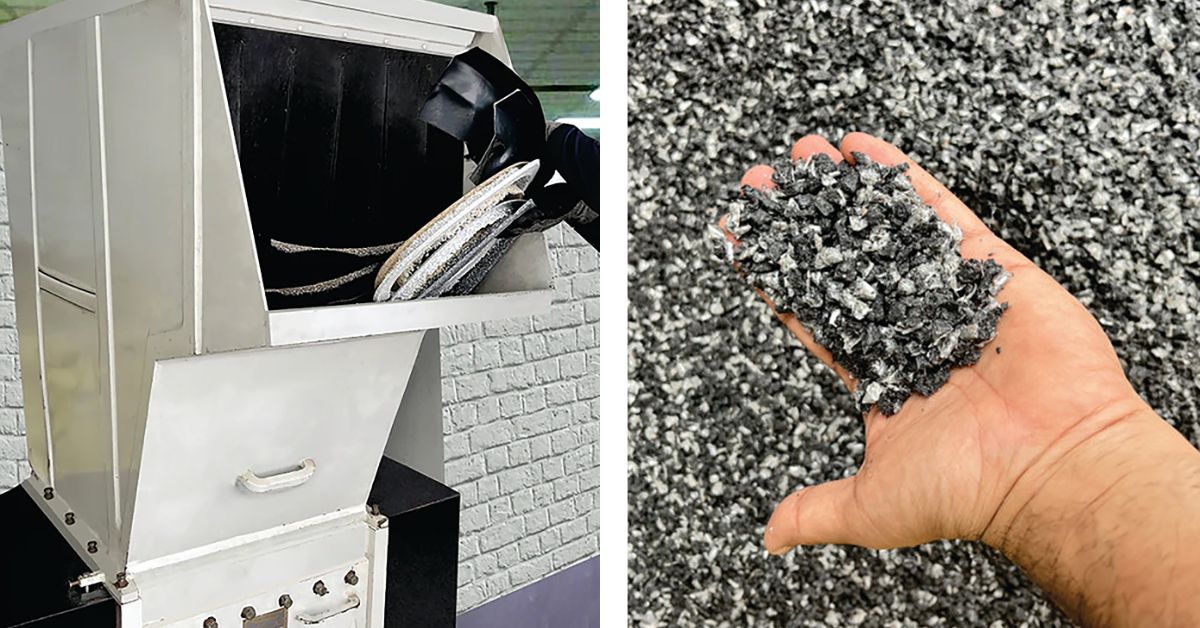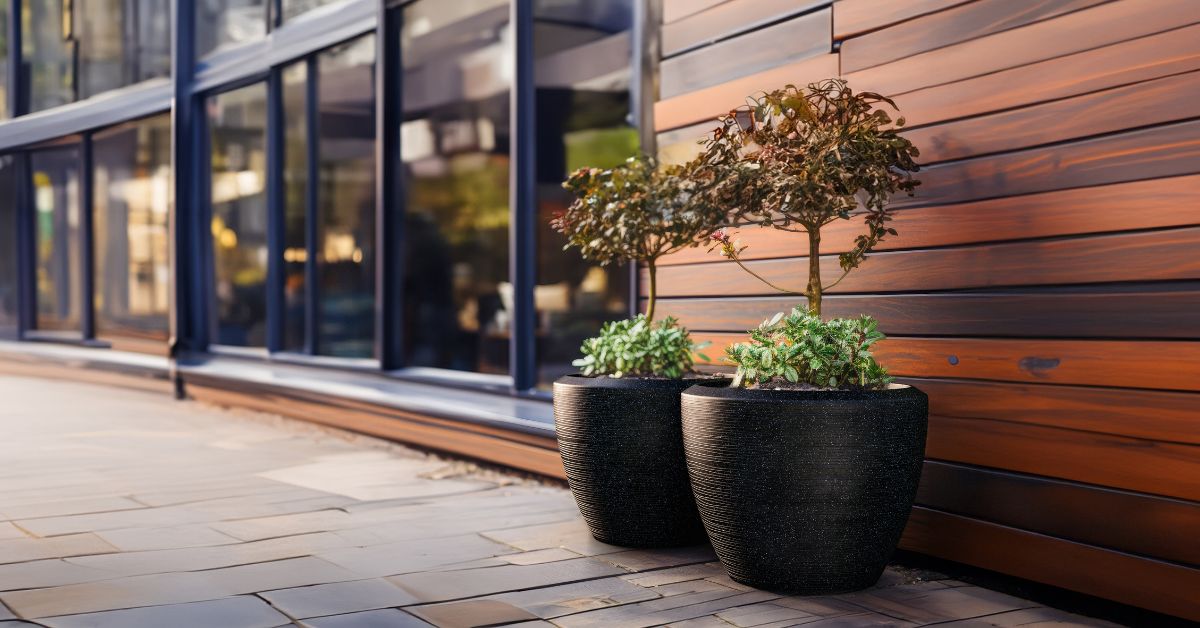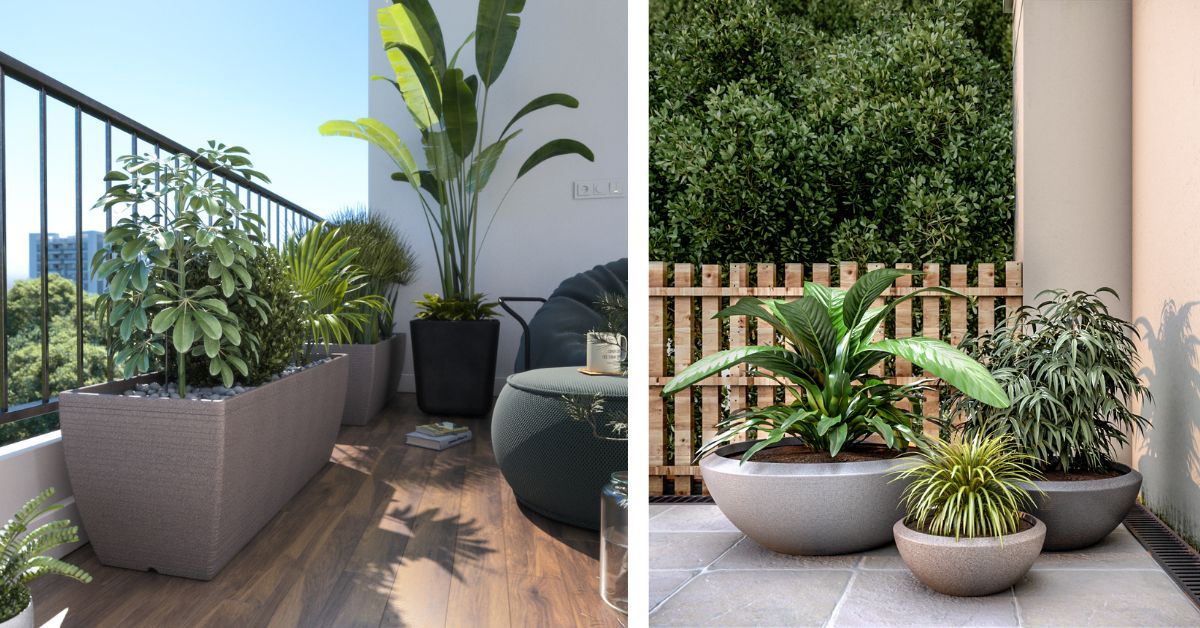How This Delhi-Based Company Saved 4.5 Million Milk Packets From Ending Up in Landfills
For decades, plastic has been both a marvel and a menace. Introduced to India in the mid-20th century, plastic quickly became a popular alternative to traditional materials due to its durability, flexibility, and low cost.
Over time, it found its way into every aspect of life — from packaging and furniture to infrastructure and fashion. But what once symbolised innovation has now become one of the planet’s biggest environmental threats. India alone generates over 3.4 million tonnes of plastic waste annually, much of it ending up in landfills or choking rivers.
Yet, not everyone sees plastic as the villain. “Plastic, for me, is not a bad material; it is the poor disposal and not repurposing it that creates a huge issue for the planet and the natural resources,” says Yuvraj Singh Ahuja, architect-turned-entrepreneur and the founder of ‘Sereno’.
Based out of Amritsar with a design office in Delhi, Yuvraj is making the best use of plastic trimmings and everyday plastics by converting them into 100% recyclable planters and furniture.
From architect to entrepreneur
Yuvraj’s journey began in the family business. His father had established Frontier Polymers Pvt. Ltd. in 1990, manufacturing rotomoulded products like water tanks and household plastic items. As the only son, Yuvraj joined the business soon after graduating in architecture in 1999.
“In the business, I was trying to find a niche that appealed to me,” the 50-year-old says. That quest led him to introduce a road safety line — cones and barriers that are now a staple on highways.
 Yuvraj started Sereno with his mother’s idea of making pots and planters.
Yuvraj started Sereno with his mother’s idea of making pots and planters.
However, Yuvraj’s design instincts nudged him in another direction. The turning point came when his mother brought home a few cheap plastic pots. “I thought, how can we create a better version in terms of design and durability?” This question sparked the birth of Sereno in 2013, initially focusing on high-quality, beautifully designed planters and seats made from virgin plastic.
That same year, Sereno won the CIA Design Excellence Award, a prestigious recognition by the Indian Institute of Interior Designers and the Government of Japan. The company also picked up three European design awards, a sure sign of its strong design ethos.
From virgin plastic to repurposed waste
In the early years, sustainability wasn’t the priority. “Plastic was the mode of manufacturing in 2013,” Yuvraj explains. But the shift came gradually. By 2018, Sereno began tapping into its own factory waste, trimmings, and rejections, which used to end up unused, to make planters, aligning more closely with the principles of reuse.
The real pivot came post-COVID, in 2021, under pressure from European buyers to look beyond internal waste and explore broader sustainability. Initially sceptical, especially about the quality of externally sourced plastics, Yuvraj began investigating global models. “Europe was collecting fishing nets and plastic debris from the ocean. While I liked that idea, I was looking for an effective solution that would solve something in India”.
Building a circular economy
By 2022, Sereno began experimenting with post-consumer waste: milk bags, shampoo bottles, and single-use plastics, before they could reach landfills. The team cracked a formula that allowed them to retain durability and aesthetics while using repurposed plastic.
 The hard-to-recycle plastic is converted into pellets, which are moulded into stylish products.
The hard-to-recycle plastic is converted into pellets, which are moulded into stylish products.
“Sereno in 2024 saved about 4.5 million milk packets from going into the landfills,” Yuvraj says proudly. With each milk bag weighing roughly four grams, that’s over 18 tonnes of plastic diverted from the waste stream.
Multiple partners help enable this. NGOs and zero-waste housing societies collect plastic, which is then sorted, cleaned, and treated to remove contaminants. This waste is processed into granules by third-party recyclers, ready for manufacturing at Sereno’s 130-person facility in Amritsar. “What is waste for you becomes raw material for me,” Yuvraj shares with a smile.
Design meets durability
Despite the sustainability pivot, Yuvraj never compromised on design or quality. “The core cannot change,” he insists, since he has a background in design and architecture. “If I have built something that has to be in the sun for 10 to 12 years, it cannot fade; it needs to sustain.”
Sereno’s products are now designed to last over 20 years and are 100% recyclable. From planters that hold large trees to stylish outdoor furniture, each item undergoes rigorous R and D and weather-resistance testing.
The results speak for themselves. Sereno’s pieces now adorn five-star hotels and luxury properties around the world. “Even today, Sereno is known for its beautiful design, and when we find people copying our designs, we know that we are doing something right,” says Yuvraj.
 Sereno’s planters don’t look like they have been made out of milk packets and shampoo bottles.
Sereno’s planters don’t look like they have been made out of milk packets and shampoo bottles.
Charu Kapur, a healer from Delhi, was introduced to Sereno two months ago via her interior designer, and she has purchased over 80 planters and potters for her new home. “The products are durable and look sleek as well. We recently had a bad thunderstorm, which caused the planters to fall. But nothing happened to its quality,” shares Charu.
“On face value, nobody will know that these products are made out of rejected plastic; they look beautiful and vibrant, matching the jungle theme of my home,” adds Charu, who also owns an outdoor seater with lights installed.
Powering sustainability with clean energy
Sustainability at Sereno goes beyond materials. Post-COVID, the factory installed 250 kw of rooftop solar panels, covering 60% of its energy needs. Diesel furnaces were phased out and replaced with UN-certified biofuels made from forest waste.
The company also underwent a Sedex audit, which certified it for ethical manufacturing practices, from ensuring safety gear for workers to on-time salaries and insurance. “These are things we don’t need to do, but we do them to create a holistic picture of what we stand for,” says Yuvraj.
Recognition as a morale boost
Among several recognitions, one stands out. “The best one for us was the European Product Design Award. The ceremony happens at the Brussels Parliament in Belgium,” he shares. “To be recognised in the same space as Italian or Scandinavian design was surreal.”
However, geopolitical turmoil has taken a toll. “Revenue for us has been a little flat line last year,” he admits, citing the Ukraine war, Suez Canal disruption, and more recently, conflict on the India-Pakistan border. Night shifts at the Amritsar facility have been halted due to safety concerns.
 Sereno’s products are sought after by clients from the UK, the US, Australia, etc.
Sereno’s products are sought after by clients from the UK, the US, Australia, etc.
Still, Sereno manufactures 600 to 850 planters a day, depending on size and has clients from the UK, the US, the Netherlands, Switzerland, Germany, Japan, and Australia. The company is now eyeing new product categories in auto furniture and other durable goods made from reprocessed plastic.
Insights for aspiring changemakers
For those keen to enter the sustainability space, Yuvraj offers a word of caution. “It is essential to do your homework properly. Understand what sustainability means. Just because one vertical is sustainable, doesn’t mean others can ignore it.”
He also emphasises transparency. Sereno is working towards the Global Recycling Certification, which demands proof of traceability, energy usage, and ethical sourcing. “You have to open up all your books. If you’re lying, you don’t pass,” he says.
Ultimately, Yuvraj believes India must lead by example. “We have to lead the way at least where we are from,” he says. At a time when plastic continues to be painted in broad strokes as an environmental hazard, entrepreneurs like Yuvraj offer a compelling counter-narrative.
By treating plastic not as a problem but as an opportunity for innovation, reuse, and responsibility, this reminds us that the material itself isn’t the enemy. It’s how we use and reuse it that truly matters.
Edited by Vidya Gowri Venkatesh. All images credit Sereno.
News